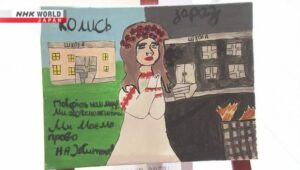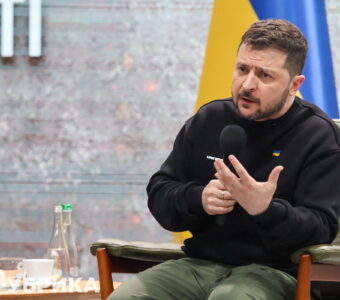Transnistria asks Russia for protection due to "increasing pressure from Moldova"

Photo: newsmaker
Local deputies from the unrecognized Transnistria have appealed to the Russian Federation Council and State Duma to implement measures to protect the self-proclaimed republic amidst "increased pressure from Moldova."
This decision was made by Transnistrian local deputies at a congress on February 28, Rubryka reports, citing NewsMaker.
Local MPs have also reached out to the OSCE, CIS, European Parliament, the International Committee of the Red Cross, and the UN Secretary-General, urging them to "influence the leadership of Moldova to return to constructive dialogue and cease violations of the rights and freedoms of Transnistria residents."
In their statement, they said Moldova allegedly initiated an "economic war" against Transnistria and accused Chisinau of deliberately obstructing negotiations with Tiraspol.
Meanwhile, before the congress, Moldova's government spokesperson, Daniel Vodă, stated that this event did not pose a risk of escalation or destabilization in the region.
"I clearly stated that there is no danger of escalation or destabilization in this region of our country. This is another campaign attempting to create hysteria in society around this so-called event in Tiraspol. It is an event orchestrated by those on the left bank of the Dniester and the Kremlin," he said.
He added that Chisinau does not see "a danger of destabilization."
"We are closely monitoring and reiterating that this region also wants peace and security. And what is happening in Tiraspol is a propagandistic event, a reception that does not deserve live broadcasts by foreign journalists or sensational headlines in news bulletins," said Daniel Vodă.
According to NewsMaker, since the beginning of 2024, Chisinau has revoked customs privileges for Transnistrian entrepreneurs, sparking a strong reaction from Tiraspol. The region's "authorities" organized protests in Tiraspol against Chisinau's actions.
On February 28, a "Congress of Deputies of All Levels" took place in Tiraspol. It was attended by deputies of the local legislative body and local district, city, and village deputies, deputies of the first convocation of the local legislative body, representatives of the local executive body, and the leader of unrecognized Transnistria Vadim Krasnoselsky.
This is the seventh such congress. The previous one was held in 2006 when local deputies adopted a decision to hold a referendum on joining Russia. In the same year, such a referendum took place, with over 90% of participants voting for the unrecognized republic to join Russia.
The international community and Chisinau did not recognize the results of the referendum.
What we know about Transnistria
Transnistria is a region along the left bank of the Dniester River. Historically, it was predominantly inhabited by Ukrainians (Rusyns) and Moldovans (Romanians). The Romanian name of the region is Transnistria, meaning "beyond the Dniester."
The region was part of various states, including the Golden Horde, the Grand Duchy of Lithuania, the Polish-Lithuanian Commonwealth, the Crimean Khanate, and the Hetmanate. From the 18th century, Transnistria was occupied by the Russian Empire. In the first half of the 20th century, the region was part of the Ukrainian People's Republic and the Ukrainian SSR, and then the Soviet authorities transferred it to Soviet Moldova.
In the 1990s, an armed conflict occurred between separatists and Russian troops on one side and Moldovan forces on the other, resulting in the de facto victory of the separatists with the participation of the Russian army. Afterward, Moldova lost control of the region.
Thus, the self-proclaimed "Transnistrian Moldovan Republic" was formed. No UN member state recognized it, except only a few states with unrecognized separatist status, such as "Abkhazia" and "South Ossetia."
The capital of this "republic" is the city of Tiraspol, and the official languages are Russian, Romanian (referred to as Moldovan in the "PMR" and used in Cyrillic script), and Ukrainian.

Moldova rejects russian claims that Ukraine is preparing a "provocation" in Transnistria

Moldova's President's party representative: Main way to Transnistria conflict resolution is russia's military defeat
















































